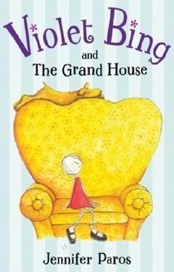Tiny Seed of Confidence: Leaving Pressure and “Overwhelm” Behind
by Jennifer Paros
“As long as I feel that inner strength, I’ll be all right.”
When I first started art school it wasn’t uncommon for me to periodically melt down. I perceived myself as under great pressure – time-wise and creatively – and feared I wouldn’t be able to pull it all together. With my focus fixated on external conditions and demands, I had a hard time functioning well. I was staring at aspects of my reality as though they were parts of a thousand-piece puzzle I had to assemble in ten minutes. My mind jumped from one piece to the next saying, “I don’t know where this one goes; I don’t know where that one goes; I don’t know . . .” I felt insecure and overwhelmed because confidence is an inside job and cannot be known while our attention remains outwardly fixed.
Sometimes I was so overwhelmed I’d get in the shower and weep. Afterwards, I’d wash up on the shore of my bed, and then, soon . . . get up and do the assignment. Post panic, I allowed myself to return to ideas and inspirations, and use my inner (rather than outer) vision. In this way, I reunited with confidence. I didn’t gain confidence by forcing myself into action, but by letting my focus shift back to me – breaking the spell of external demands.
In an interview, comedian and late-night host Conan O’Brien spoke of suffering from intense anxiety (a familial trait) all his life. He said there’s one thing that has always gotten him through. “At my very core there is this tiny little seed of pure confidence . . . It’s sometimes hard for me to find . . . but it’s there.” It’s common to think we need a lot of confidence to create what we want, in which case feeling confident can seem impossible, but a seed is actually plenty. And when we know confidence exists at the core of who we are, then we know where to look for it, as well as where it cannot be found.
I watched video in which a five-year-old boy at a karate dojo tried to break a board with a kick. His teacher coached him, but the boy fell down the first time he tried. The boy kicked again but did not use enough force. He cried and rubbed his eyes. The rest of the children cheered him on by chanting his name. He continued to cry. The teacher reminded him he could do it. The boy tried again and failed, but then, in a split second, something in his countenance and attitude changed and his next kick broke the board. The children cheered, ran in, and hugged him. Though surrounded by encouragement and support, it was his internal shift that was key. He went from staring at something he couldn’t yet do, to rooting himself inward where he found that seed of confidence – his power.
“There is a lot of pressure put on me, but I don’t put a lot of pressure on myself. I feel if I play my game, it will take care of itself.”
We keep ourselves from finding and feeling our confidence. We might not even know it’s already inside us, believing instead that confidence has to be acquired rather than owned. Or, as in the case of the little boy, we might lose our sense of ourselves (where confidence lives) while temporarily hypnotized by the seeming pressure of the task at hand.
There is a term used in psychology: locus of control. It refers to the degree to which we think we have influence and impact on our lives. Personality types with an external locus of control believe luck or circumstances are determinant – that outside factors have greater power over their experience. Those with an internal orientation mainly believe their attitude, action, and focus affect their lives and ability to succeed. Internal locus types tend to be happier, higher achieving, have a strong sense of self-efficacy, and are physically healthier and more confident.
We are the instigators and activators of our confidence. That is control. When we believe the external world has more power over how we feel and live than we do, finding that seed of confidence becomes difficult. Locating confidence requires a pinpoint focus inward. We can teach ourselves how to find “home” – return to the core of who we are, and no longer look for self-assurance amongst the busyness, demands, and moving parts of life. We can reunite with the power and the readiness to break boards, paint pictures, write books, or whatever we wish.
Jennifer Paros is a writer, illustrator, and author of Violet Bing and the Grand House (Viking, 2007). She lives in Seattle. Please visit her website.

